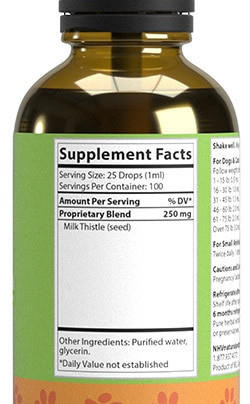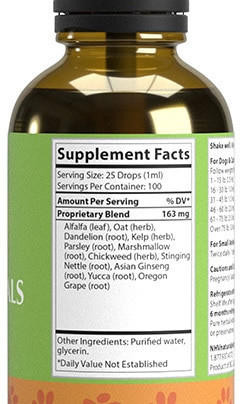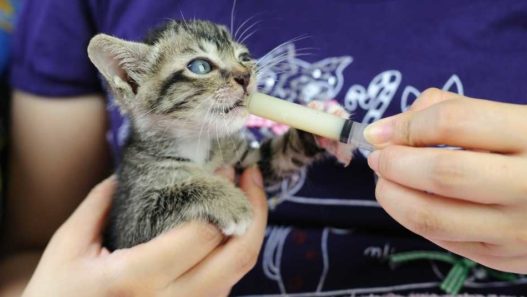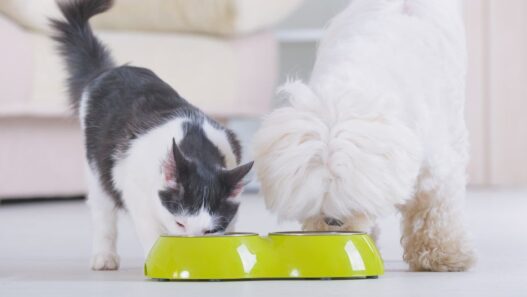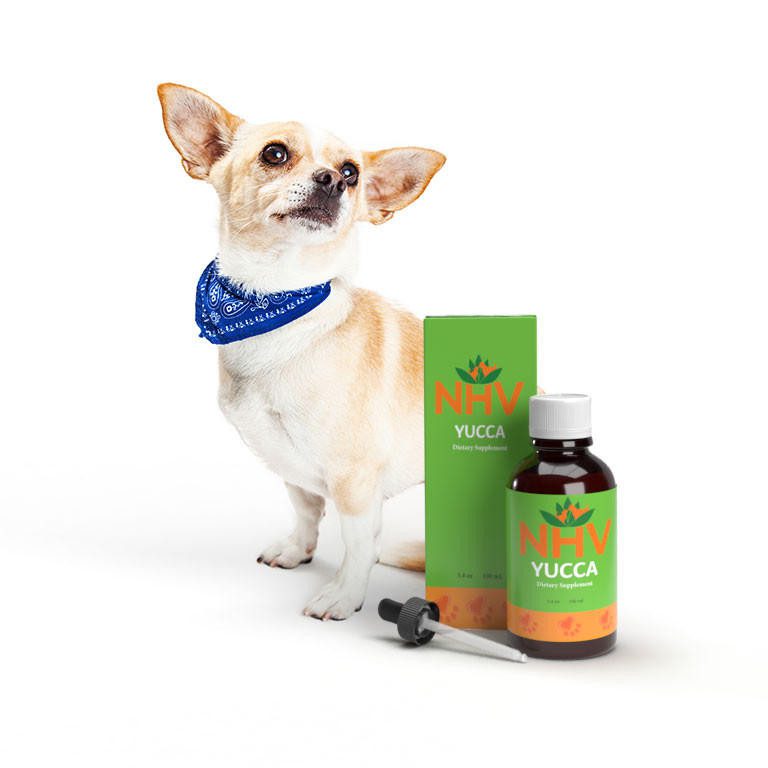
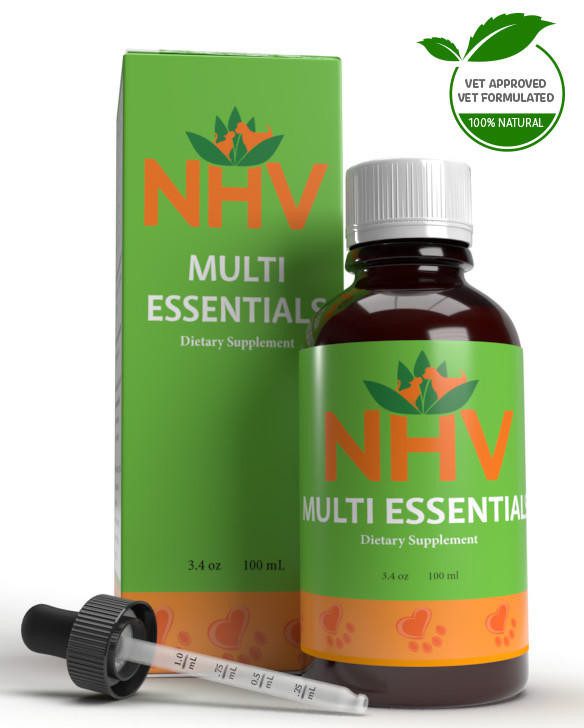
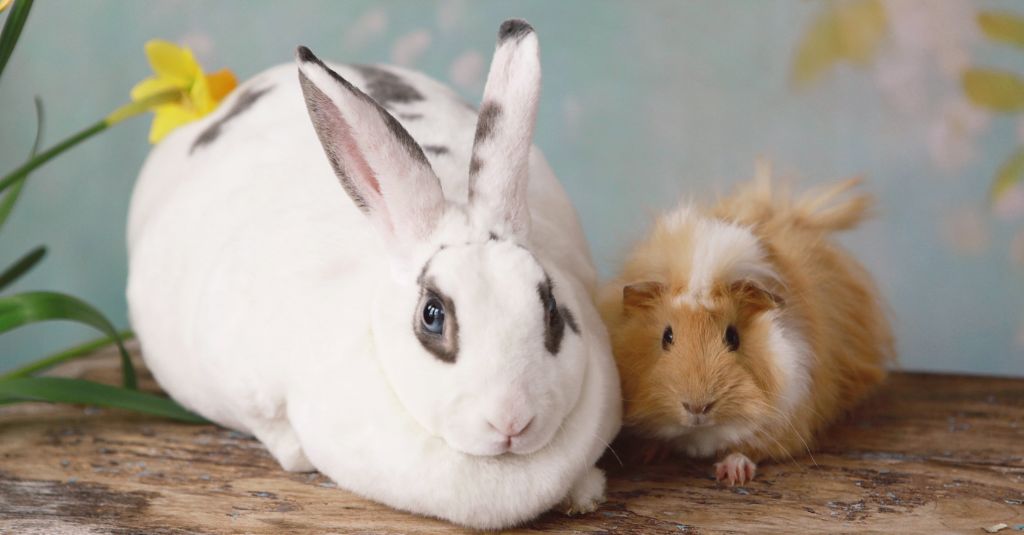
Curious about doing a health inspection for guinea pigs or rabbits?
Prevention is one of the most essential pillars of health for any animal species. Being proactive instead of reacting after a diagnosis is the most effective and convenient way to keep our little ones healthy and happy.
While most people are very familiar with dogs’ and cats’ preventative health measures, like vaccination, deworming, and regular vet check-ups, not much is said regarding other less common – but not less adorable – pets like guinea pigs and bunnies.
Regular physical inspection is strongly recommended
Like for any other species, regular physical inspection is strongly recommended by veterinarians. Because of its importantace, we want to share with you the essentials of guinea pigs’ and bunnies’ health inspection and proactive measures.
Weekly Health Checklist

A good care routine should always include physical examination. These lovely, furry pets can hide many relevant signs about their health status under their soft fur, making regular physical inspection even more crucial. There are many signs that, if you don’t search, you will probably not notice them on time.
The key aspects you should check for both bunnies and guinea pigs at least every week are the coat, skin, eyes, ears, mouth and teeth, feet and nails, and weight.
Here are the steps you can take to proceed with the physical inspection.
Coat and Skin Checklist
- Coat: Check the condition and consistency; it should not look dull, dry, patchy, brittle, or greasy.
- Skin: Look for signs of irritated, inflamed, or infected skin, such as redness, flaky skin, or dandruff. Make sure there are no injuries, bumps, or lumps.
- Feet: Inspect for broken nails or injuries in and between their fingers. Sores in the soles of their feet can be common and may indicate the presence of pododermatitis, a common condition.
Face Checklist
- Eyes: Inspect eyes and eyelids without touching them; eyes are very delicate. Look for abnormal discharge, inflamed eyelids, opacity, and redness. If you notice that something looks abnormal, let your vet know about it.
- Nose: This area can usually show signs of respiratory symptoms. Check for nasal discharge, inflammation, or injuries.
- Mouth: This is a very important area to check in bunnies and guinea pigs, as dental problems are very common. Check for drooling, overgrown teeth, swelling, and ulcers.
- Ears: They should look clean, without discharge, injuries, buildup, and foul smell.
Signs to Watch Out For
Besides looking for the signs mentioned above that can indicate that something is happening with your little one’s health, there are additional relevant aspects that you must include in your fur baby’s weekly check-up.

The most common systems affected by health issues in guinea pigs and rabbits are the digestive and respiratory systems, the mouth, and the skin. Therefore, as you already know, the signs that you always have to pay attention to during physical examination are ocular or nasal discharge, drooling, and injuries in the mouth and feet.
However, this is not everything. There are other warning signs that may be less evident sometimes, but not less important. In addition to a physical examination, attention to behavior, appetite, and digestion can also provide valuable information about their health status.
If any of these signs are present, contact your veterinarian
Any changes in behavior, such as lethargy, sleeping more than usual, or not reacting to noises or touch, may indicate that they are not feeling well. Changes in posture, like a hunched posture, abnormal walk, or limping, are also warning signs. As for digestion, loss of appetite, sudden weight gain or loss, and diarrhea are things to consider. If any of these signs are present, contact your veterinarian as soon as possible to get your little one’s veterinary attention and prevent further complications.
Tips for Stress-Free Checks
The goal is to be able to check their general health every week, and for that, we need to make sure this is a non-stressful, friendly experience.
To help your bunny or guinea pig get used to the health checks, there are some useful and simple tips that we’d like to share with you:
- Environment: Perform the health check in a comfortable, familiar place for them. For example, it can be in or close to where they sleep or spend most of their time. Make sure there are no loud noises, other pets close by, or any stimulus that could stress them. Doing this closer to the floor is better and safer than doing it at heights.
- Positive association: To create a positive association and make health checks exciting for them, you can give some treats during and after the process. It’s better if you give them a very delicious treat that they love and don’t usually eat, to make it more exciting. Remember to always give them treats suitable for their species.
- Gradualness: If you are just going to introduce health checks in your fur baby’s routine, start gradually. The first time, dedicate only a few seconds. Increase the time until you’re able to check them fully without any problems. Treats are key to this, as they will facilitate the process.
- Respect: Remember that these sweet animals are very delicate and sensitive. Always be very careful and respectful when inspecting their bodies. Don’t make sudden movements, and always keep in mind their mental and physical well-being.
Supplements for Wellness and Vitality
At NHV, we’re glad to support customers and their bunnies and guinea pigs. We have many supplements that can support these cute animals’ health, and here we’d like to share some options for overall wellness and vitality.
NHV Multi Essentials
NHV Multi Essentials is a plant-based herbal extract rich in vitamins and minerals. It aids digestion, enhances nutrient absorption, and promotes healthy skin and coat. It can also help stimulate the metabolism, reduce fatigue, and increase energy.
NHV Yucca
NHV Yucca is a single-herb formula has valuable anti-inflammatory properties that can help reduce inflammation and discomfort. Additionally, it supports digestive health, which can indirectly promote appetite. It’s a good option if there is anything causing inflammation, discomfort, and digestive upset.
NHV Milk Thistle
This herb is known for its valuable benefits for liver health. It can also support kidney function and has detoxifying, anti-inflammatory, and antioxidant properties, making it a good option for taking care of these important organs and promoting overall health.
Dosing Supplements for Small Pets
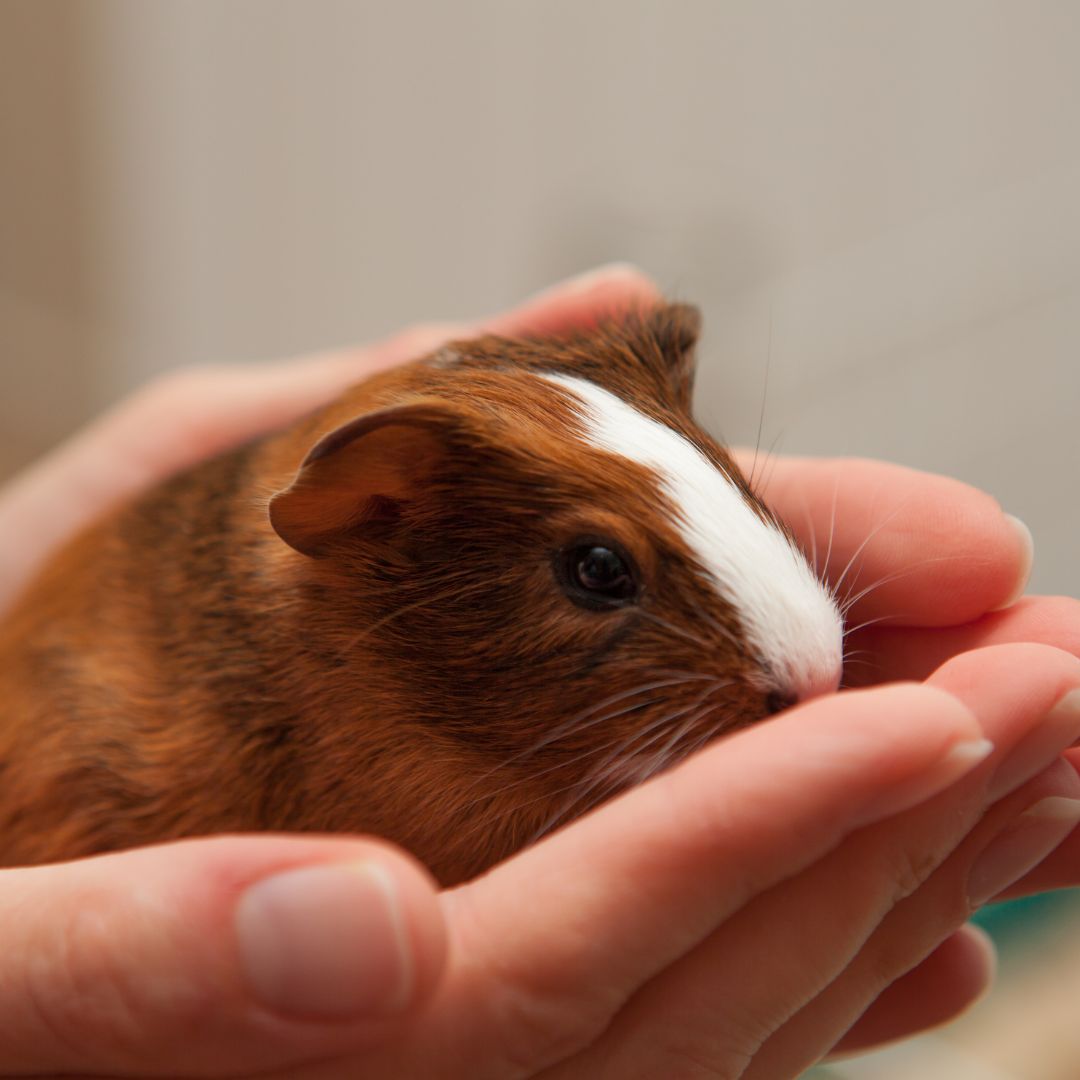
The recommended dosage of NHV oral herbal formulas for rabbits and guinea pigs is 0.5 ml twice daily. While the bottle indicates a minimum dosage of one drop per two pounds for pocket pets, we have specifically tailored our recommendation to accommodate these species’ faster metabolism.
Need Personalized Recommendations?
If you’d like to support your pet naturally with our supplements, it’s always a good idea to inform your veterinarian, as they are the ones who know your little one’s health in depth. Also, before getting any supplement, and if you have any questions, you are more than welcome to contact our pet expert team. They will answer all your questions and provide personalized guidance to find the best supplements for your fur baby.

NHV Yucca
Yucca - help improve a pets appetite when necessary and supports digestions and help with pain and inflammation.
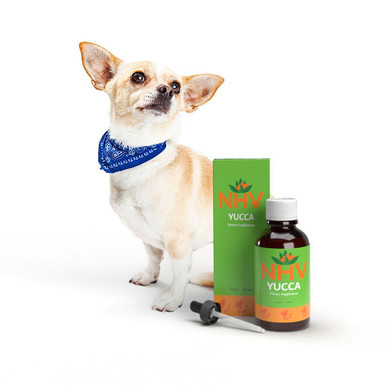
Yucca - help improve a pets appetite when necessary and supports digestions and help with pain and inflammation.
- item number
- ph8000fb
- weight
- 0.7
-
Description
- item number
- ph8000fb
- weight
- 0.7
-
Ingredients
-
Dosage
liver support
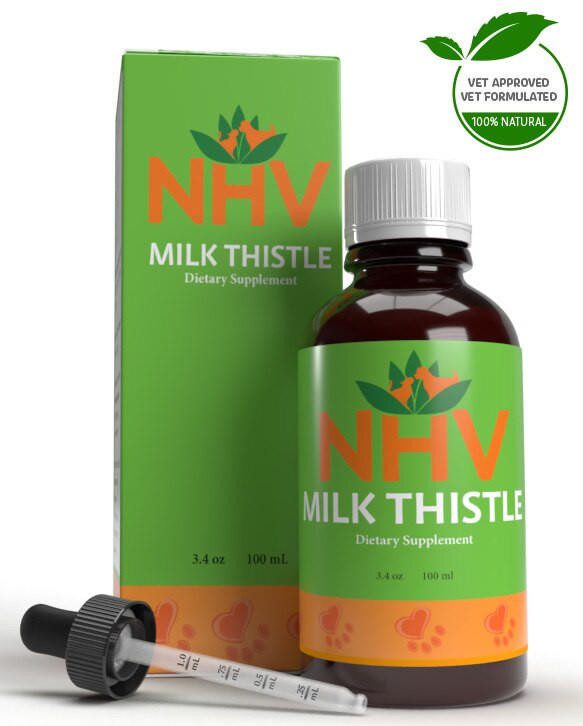
Milk Thistle for Pocket Pets
Milk Thistle for Pocket Pets
Natural Liver support for hamsters, guinea pigs & other small pets
buy 2 and save $3
3 month supply for a small to medium size pet
What is it?
NHV Milk Thistle is a natural liver support that may help the body remove metabolic wastes, may help to improve liver function, and may help support the kidneys as well.
How does it work?
- Beneficial support for the liver and kidneys
- Supports the regeneration of the liver
- Antioxidant properties may benefit as anti-cancer support
- May improve digestion (supports increased bile flow)
Why trust it?
NHV Milk Thistle is a full-spectrum extract of certified organic and human-grade milk thistle.

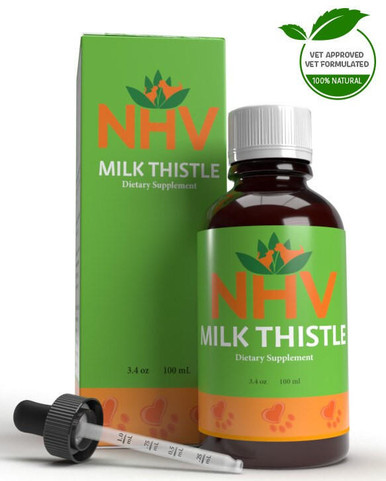
What is it?
NHV Milk Thistle is a natural liver support that may help the body remove metabolic wastes, may help to improve liver function, and may help support the kidneys as well.
How does it work?
- Beneficial support for the liver and kidneys
- Supports the regeneration of the liver
- Antioxidant properties may benefit as anti-cancer support
- May improve digestion (supports increased bile flow)
Why trust it?
NHV Milk Thistle is a full-spectrum extract of certified organic and human-grade milk thistle.

Natural Liver support for hamsters, guinea pigs, gerbils and other small pets
The liver is an organ with many important functions. Its many responsibilities include filtering toxins out of the blood, releasing bile for effective digestion and more. Because the liver is so vital to the health of all pocket pets, Milk Thistle is especially beneficial for pets fighting off serious illnesses like cancer or fatty liver disease. It contains the active compound silymarin, which may help to detoxify the liver and encourages cell regeneration. Studies have shown that Milk Thistle may also help support kidney function.
How NHV Milk Thistle Supports Cancer and Liver Disease
Tumors are fairly common for many pocket pets, like cases of hamster liver cancer or guinea pig liver failure. Milk Thistle contains the active compound silymarin which has been used for thousands of years for its many beneficial properties. If your pet gets cancer, they will most likely be prescribed powerful cancer medications which can damage the kidneys and damage the liver. So in terms of cancer support, milk thistle is extremely beneficial to help offset the negative effects of medications and support liver function due to its rich concentration of free radical scavengers.
Support Your Pocket Pets Naturally
It’s great to know that there are ways to support your little one’s health naturally! All NHV products use only the finest organic, wild-crafted ingredients and formulated by the combined efforts of a master herbalist and veterinarian with 50+ years of experience. If you have any questions about natural liver support or need any holistic advice, please get in touch with an NHV Pet Expert - we are always happy to help!
- item number
- PH1250p
- weight
- 0.7
- volume
- 3.4 fl. oz. (100ml)
- form
- liquid
- life stages
- adult, senior, juvenile
- made in
- canada
Made with the finest, organically grown, or ethically harvested herbs. Made specifically for pets, vet-formulated and vet approved.
- Milk Thistle contains the compound silymarin. Studies have shown that silymarin contains anti-inflammatory, antioxidant, and detoxifying properties to promote regeneration and repair. Milk Thistle is beneficial for helping to remove wastes that may accumulate due to illness. Our formulation of Milk Thistle is especially beneficial for pets on strong medication, radiation therapy, or have kidney damage caused by infection.
Pet's Weight Dosage
To be taken twice daily. All NHV supplements are designed to be used together, and can, therefore, be given at once for convenience.
Select your pet's weight to determine the correct dose.
For ferrets: 0.5ml twice a day
For rabbits and guinea pigs: 0.5 ml twice a day
For hamsters and mice: 1 drop per two pounds twice a day
How to Administer
Shake well before use. The easiest method is to use the dropper provide and places the drops into your pet’s food or favorite treat. You can also use the dropper and squirt directly into the pet’s mouth.
Some pets can be finicky, if this occurs consider hiding the drops in foods most pet’s love such as mashed banana, strawberry or another favorite treat.
For Best Results
Herbal dietary supplements are beneficial to the health and wellbeing of your pet and are safe for long-term use. Every pet responds to natural herbal supplements differently, therefore it is important to be consistent and administer the product daily. Supplements generally take two to four weeks to take effect, however this will vary from one animal to the next.
Product Storage
All NHV Natural Pet Products are pure herbal extracts and contain no artificial additives, preservatives or coloring. Shelf life after opening is 6 months and must be refrigerated after opening.
Cautions and Contraindications
Do not use Milk Thistle in pregnant or nursing animals. Speak to your vet before using our products. A second visit is recommended if your pet’s condition does not improve, or deteriorates after continued use of the supplements.
All information provided by NHV Natural Pet Products is for educational purposes only.
-
Description
Natural Liver support for hamsters, guinea pigs, gerbils and other small pets
The liver is an organ with many important functions. Its many responsibilities include filtering toxins out of the blood, releasing bile for effective digestion and more. Because the liver is so vital to the health of all pocket pets, Milk Thistle is especially beneficial for pets fighting off serious illnesses like cancer or fatty liver disease. It contains the active compound silymarin, which may help to detoxify the liver and encourages cell regeneration. Studies have shown that Milk Thistle may also help support kidney function.
How NHV Milk Thistle Supports Cancer and Liver Disease
Tumors are fairly common for many pocket pets, like cases of hamster liver cancer or guinea pig liver failure. Milk Thistle contains the active compound silymarin which has been used for thousands of years for its many beneficial properties. If your pet gets cancer, they will most likely be prescribed powerful cancer medications which can damage the kidneys and damage the liver. So in terms of cancer support, milk thistle is extremely beneficial to help offset the negative effects of medications and support liver function due to its rich concentration of free radical scavengers.
Support Your Pocket Pets Naturally
It’s great to know that there are ways to support your little one’s health naturally! All NHV products use only the finest organic, wild-crafted ingredients and formulated by the combined efforts of a master herbalist and veterinarian with 50+ years of experience. If you have any questions about natural liver support or need any holistic advice, please get in touch with an NHV Pet Expert - we are always happy to help!
- item number
- PH1250p
- weight
- 0.7
- volume
- 3.4 fl. oz. (100ml)
- form
- liquid
- life stages
- adult, senior, juvenile
- made in
- canada
-
Ingredients
Made with the finest, organically grown, or ethically harvested herbs. Made specifically for pets, vet-formulated and vet approved.
- Milk Thistle contains the compound silymarin. Studies have shown that silymarin contains anti-inflammatory, antioxidant, and detoxifying properties to promote regeneration and repair. Milk Thistle is beneficial for helping to remove wastes that may accumulate due to illness. Our formulation of Milk Thistle is especially beneficial for pets on strong medication, radiation therapy, or have kidney damage caused by infection.
-
Dosage
Pet's Weight Dosage
To be taken twice daily. All NHV supplements are designed to be used together, and can, therefore, be given at once for convenience.
Select your pet's weight to determine the correct dose.
For ferrets: 0.5ml twice a day
For rabbits and guinea pigs: 0.5 ml twice a day
For hamsters and mice: 1 drop per two pounds twice a day
How to Administer
Shake well before use. The easiest method is to use the dropper provide and places the drops into your pet’s food or favorite treat. You can also use the dropper and squirt directly into the pet’s mouth.Some pets can be finicky, if this occurs consider hiding the drops in foods most pet’s love such as mashed banana, strawberry or another favorite treat.
For Best Results
Herbal dietary supplements are beneficial to the health and wellbeing of your pet and are safe for long-term use. Every pet responds to natural herbal supplements differently, therefore it is important to be consistent and administer the product daily. Supplements generally take two to four weeks to take effect, however this will vary from one animal to the next.Product Storage
All NHV Natural Pet Products are pure herbal extracts and contain no artificial additives, preservatives or coloring. Shelf life after opening is 6 months and must be refrigerated after opening.Cautions and Contraindications
Do not use Milk Thistle in pregnant or nursing animals. Speak to your vet before using our products. A second visit is recommended if your pet’s condition does not improve, or deteriorates after continued use of the supplements.All information provided by NHV Natural Pet Products is for educational purposes only.
multivitamin support

Multi Essentials for Pocket Pets
Multi Essentials for Pocket Pets
All-Natural Multivitamin for Pocket Pets
buy 2 and save $3
3 month supply for a small to medium size pet
What is it?
To help your gerbil, teddy bear hamster, or hairless guinea pig age gracefully, our pocket pet supplements are formulated to deliver vital nutrients, help maintain many body processes and encourage healthy skin and coat.
How does it work?
- Contains a broad spectrum of vitamins, minerals and trace elements
- Encourages healthy skin and coat
- Aids effective digestion
- Supports healthy energy levels and metabolism
Why should I trust it?
NHV supplements use human-grade herbs, so your pet only gets the best!

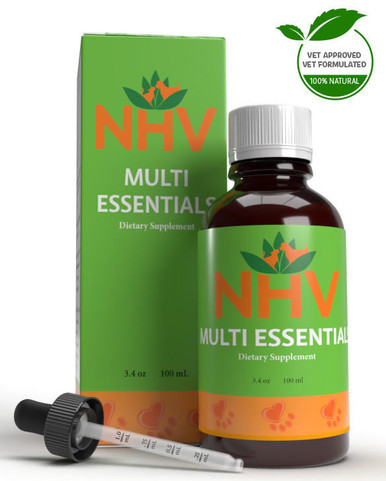
What is it?
To help your gerbil, teddy bear hamster, or hairless guinea pig age gracefully, our pocket pet supplements are formulated to deliver vital nutrients, help maintain many body processes and encourage healthy skin and coat.
How does it work?
- Contains a broad spectrum of vitamins, minerals and trace elements
- Encourages healthy skin and coat
- Aids effective digestion
- Supports healthy energy levels and metabolism
Why should I trust it?
NHV supplements use human-grade herbs, so your pet only gets the best!

What is considered a pocket pet?
As pet parents, we all want our pets to live long and happy lives - whether they're large or tiny pocket-sized pets! Pocket pets are small animals that include:
- Fancy rats and American rats
- Mice
- Gerbils
- Teddy bear hamsters (Syrian)
- American guinea pigs
- Chinchillas
- Hedgehogs
- Sugar Gliders
A Natural Multivitamin for Pocket Pets
A vitamin deficiency can have detrimental effects on a pocket pet’s health and may lead to many different health conditions. A long and healthy life starts with good nutrition, so for pet parents looking for natural supports for their teddy bear hamster, gerbil, or chinchilla, our Multi Essentials for Pocket Pets offers a liquid formulation made with a blend of 11 nutrient-dense herbs formulated to help maintain many body processes, help metabolize vitamins and minerals, and aid digestion. It is beneficial support for pocket pets exposed to environmental toxins as well as encourages healthy skin and coat. All of our supplements are made with full-spectrum plant extracts that are crafted specifically for pets of all sizes. Full-spectrum means that all of the vitamins, minerals, and trace elements are kept intact during the extraction process to make it easily absorbable for your pocket pet.
How NHV's Pet Nutrition Supplements Promotes Health and Overall Vitality
Having an imbalanced diet can cause a lot of stress and discomfort for your furry friend. Our Multi Essentials for Pocket Pets is an all-natural herbal remedy formulated to help fill nutritional voids, help reduce fatigue and help to improve digestion.
Common health issues caused by a nutrient deficiency:
- Anemia and respiratory issues
- Skin and coat issues
- Diarrhea or wet tail
- Vitamin C deficiency in guinea pigs (lack the enzyme to make it on their own)
- Hindlimb paralysis or muscle tremors in sugar gliders caused by a deficiency in calcium, phosphorus, and vitamin D
Support Your Pocket Pet Naturally!
With NHV Supplements, you can give your furkiddo the extra support they need to age gracefully! All of our care products are created with 100% organic or wildcrafted ingredients and can be used safely alongside vet-prescribed medication. If you have any questions about pet supplements or holistic remedies, Get in touch with an NHV Pet Expert - we’re here for you every step of the way!
- item number
- PH1200p
- weight
- 0.7
- volume
- 3.4 fl. oz. (100ml)
- form
- liquid
- made in
- canada
Made with the finest, organically grown, or ethically harvested herbs. Made specifically for pets, vet-formulated and vet approved.
- Alfalfa contains high protein levels (50%), vitamins A, B1, B12, C, D, E and K as well as many minerals and dietary fiber for a healthy pocket pet.
- Asian Ginseng is known to help encourage overall vitality, support healthy metabolism and help protect the body from stress and illness.
- Chickweed contains ascorbic acid, beta-carotene, calcium, zinc, magnesium, potassium, flavonoids, riboflavin, thiamine and zinc.
- Dandelion is a highly nutritious food rich in vitamins A, B, C, D and minerals iron, potassium, zinc, phosphorus and magnesium to help support metabolism and digestion.
- Kelp is a nutritious superfood and contains a range of healthful compounds, including a great source of iodine, which activates metabolism in the body.
- Marshmallow is rich in calcium, which encourages healthy bones and joints. It also contains anti-inflammatory and healing properties to help soothe inflamed tissue.
- Oat is rich in protein, B vitamins, and minerals (Ca, P, Mn, Cu, Zn, Fe) which are beneficial for the nervous system and body.
- Oregon Grape contains infection fighting and anti-inflammatory properties with strong affinities to the liver, digestive system and mucous membranes.
- Parsley contains protein (up to 22%), vitamins and minerals to help expel intestinal gas and help lower blood pressure.
- Stinging Nettle is rich in vitamins A, K, beta-carotene, and minerals calcium, magnesium, potassium and phosphorus to help improve immune function and metabolism.
- Yucca is rich in vitamin C, beta-carotene, calcium, iron, magnesium, B vitamins and steroidal saponins that help with nutrient absorption and aid effective digestion.
Pet's Weight Dosage
To be taken twice daily. All NHV supplements are designed to be used together, and can, therefore, be given at once for convenience.
Select your pet's weight to determine the correct dose.
For ferrets: 0.5ml twice a day
For rabbits and guinea pigs: 0.5 ml twice a day
For hamsters and mice: 1 drop per two pounds twice a day
How to Administer
Shake well before use. The easiest method is to use the dropper provide and place the drops into your bird's favorite treat. You can also use the dropper and squirt directly into the bird’s mouth.
For Best Results
Herbal dietary supplements are beneficial to the health and wellbeing of your pet and are safe for long-term use. Every pet responds to natural herbal supplements differently, therefore it is important to be consistent and administer the product daily. Supplements generally take two to four weeks to take effect, however this will vary from one animal to the next.
Product Storage
All NHV Natural Pet Products are pure herbal extracts and contain no artificial additives, preservatives or coloring. Shelf life after opening is 6 months and must be refrigerated after opening.
Cautions and Contraindications
Do not use Multi Essentials in pregnant or nursing animals. Speak to your vet before using our products. A second visit is recommended if your pet’s condition does not improve, or deteriorates after continued use of the supplements.
All information provided by NHV Natural Pet Products is for educational purposes only.
-
Description
What is considered a pocket pet?
As pet parents, we all want our pets to live long and happy lives - whether they're large or tiny pocket-sized pets! Pocket pets are small animals that include:
- Fancy rats and American rats
- Mice
- Gerbils
- Teddy bear hamsters (Syrian)
- American guinea pigs
- Chinchillas
- Hedgehogs
- Sugar Gliders
A Natural Multivitamin for Pocket Pets
A vitamin deficiency can have detrimental effects on a pocket pet’s health and may lead to many different health conditions. A long and healthy life starts with good nutrition, so for pet parents looking for natural supports for their teddy bear hamster, gerbil, or chinchilla, our Multi Essentials for Pocket Pets offers a liquid formulation made with a blend of 11 nutrient-dense herbs formulated to help maintain many body processes, help metabolize vitamins and minerals, and aid digestion. It is beneficial support for pocket pets exposed to environmental toxins as well as encourages healthy skin and coat. All of our supplements are made with full-spectrum plant extracts that are crafted specifically for pets of all sizes. Full-spectrum means that all of the vitamins, minerals, and trace elements are kept intact during the extraction process to make it easily absorbable for your pocket pet.
How NHV's Pet Nutrition Supplements Promotes Health and Overall Vitality
Having an imbalanced diet can cause a lot of stress and discomfort for your furry friend. Our Multi Essentials for Pocket Pets is an all-natural herbal remedy formulated to help fill nutritional voids, help reduce fatigue and help to improve digestion.
Common health issues caused by a nutrient deficiency:
- Anemia and respiratory issues
- Skin and coat issues
- Diarrhea or wet tail
- Vitamin C deficiency in guinea pigs (lack the enzyme to make it on their own)
- Hindlimb paralysis or muscle tremors in sugar gliders caused by a deficiency in calcium, phosphorus, and vitamin D
Support Your Pocket Pet Naturally!
With NHV Supplements, you can give your furkiddo the extra support they need to age gracefully! All of our care products are created with 100% organic or wildcrafted ingredients and can be used safely alongside vet-prescribed medication. If you have any questions about pet supplements or holistic remedies, Get in touch with an NHV Pet Expert - we’re here for you every step of the way!
- item number
- PH1200p
- weight
- 0.7
- volume
- 3.4 fl. oz. (100ml)
- form
- liquid
- made in
- canada
-
Ingredients
Made with the finest, organically grown, or ethically harvested herbs. Made specifically for pets, vet-formulated and vet approved.
- Alfalfa contains high protein levels (50%), vitamins A, B1, B12, C, D, E and K as well as many minerals and dietary fiber for a healthy pocket pet.
- Asian Ginseng is known to help encourage overall vitality, support healthy metabolism and help protect the body from stress and illness.
- Chickweed contains ascorbic acid, beta-carotene, calcium, zinc, magnesium, potassium, flavonoids, riboflavin, thiamine and zinc.
- Dandelion is a highly nutritious food rich in vitamins A, B, C, D and minerals iron, potassium, zinc, phosphorus and magnesium to help support metabolism and digestion.
- Kelp is a nutritious superfood and contains a range of healthful compounds, including a great source of iodine, which activates metabolism in the body.
- Marshmallow is rich in calcium, which encourages healthy bones and joints. It also contains anti-inflammatory and healing properties to help soothe inflamed tissue.
- Oat is rich in protein, B vitamins, and minerals (Ca, P, Mn, Cu, Zn, Fe) which are beneficial for the nervous system and body.
- Oregon Grape contains infection fighting and anti-inflammatory properties with strong affinities to the liver, digestive system and mucous membranes.
- Parsley contains protein (up to 22%), vitamins and minerals to help expel intestinal gas and help lower blood pressure.
- Stinging Nettle is rich in vitamins A, K, beta-carotene, and minerals calcium, magnesium, potassium and phosphorus to help improve immune function and metabolism.
- Yucca is rich in vitamin C, beta-carotene, calcium, iron, magnesium, B vitamins and steroidal saponins that help with nutrient absorption and aid effective digestion.
-
Dosage
Pet's Weight Dosage
To be taken twice daily. All NHV supplements are designed to be used together, and can, therefore, be given at once for convenience.
Select your pet's weight to determine the correct dose.
For ferrets: 0.5ml twice a day
For rabbits and guinea pigs: 0.5 ml twice a day
For hamsters and mice: 1 drop per two pounds twice a day
How to Administer
Shake well before use. The easiest method is to use the dropper provide and place the drops into your bird's favorite treat. You can also use the dropper and squirt directly into the bird’s mouth.For Best Results
Herbal dietary supplements are beneficial to the health and wellbeing of your pet and are safe for long-term use. Every pet responds to natural herbal supplements differently, therefore it is important to be consistent and administer the product daily. Supplements generally take two to four weeks to take effect, however this will vary from one animal to the next.Product Storage
All NHV Natural Pet Products are pure herbal extracts and contain no artificial additives, preservatives or coloring. Shelf life after opening is 6 months and must be refrigerated after opening.Cautions and Contraindications
Do not use Multi Essentials in pregnant or nursing animals. Speak to your vet before using our products. A second visit is recommended if your pet’s condition does not improve, or deteriorates after continued use of the supplements.All information provided by NHV Natural Pet Products is for educational purposes only.
Published: September 12, 2025

 USD
USD
 Canadian Dollars
Canadian Dollars


